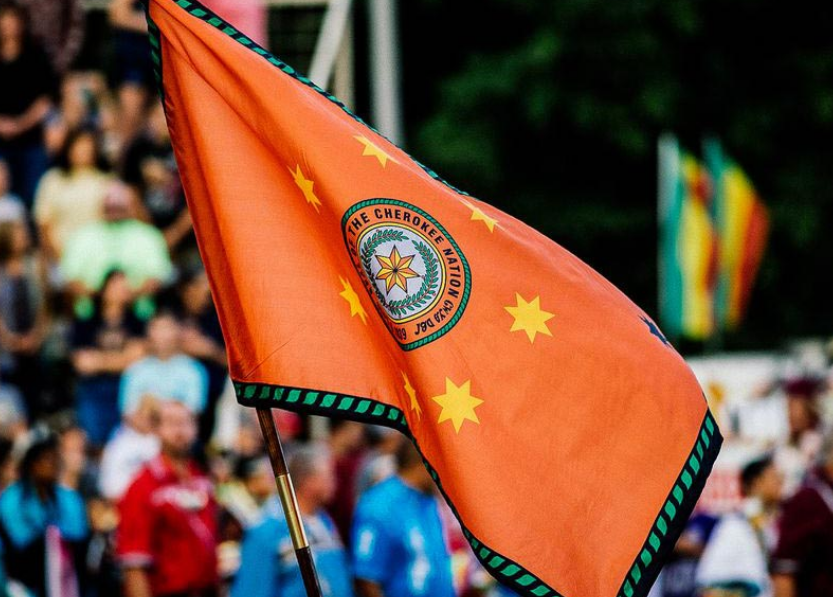
- Details
- By Chuck Hoskin Jr
Guest Opinion. The largest, most comprehensive budget in the history of the Cherokee Nation will improve lives both for Cherokees and non-Cherokees across our 7,000-square-mile reservation in northeast Oklahoma. In the coming fiscal year, we will distribute more than $3.5 billion into more and better services for Cherokee citizens.
The Cherokee Nation Executive and Finance Committee, a committee of the Council of the Cherokee Nation, recently passed unanimously the record-breaking 2023-24 budget.
This landmark budget includes significant increases to the programs that help Cherokee families become happier, healthier and stronger. The increase will allow us to protect more vulnerable Cherokees, expand our cultural preservation efforts, and help place more of our people in education and good jobs. We are investing more to assist Cherokee elders and improve housing across our reservation.
In the coming year, much of our focus will be on providing a blanket of protection for all who visit, live and work on the Cherokee Nation Reservation. We have already made historic investments in our criminal justice system over the past three years. We have more than tripled the budget and staffing capacity of the Cherokee Nation Marshal Service.

The FY 2023 budget proposal by Deputy Chief Bryan Warner and me goes even further towards building the best criminal justice system in the state of Oklahoma. This includes providing more resources to our law enforcement officers, judicial system, Attorney General’s Office and victim services.
Keeping our people safe and ensuring justice weigh on the shoulders of every Cherokee Nation leader. We must get this right. So, we will also be proposing new legislation this month that creates the Cherokee Nation Violence Against Women Act to help protect women, children and men who have been victims and survivors of domestic violence.
Just as Cherokee Nation worked to ensure critical protections for Native communities were included in the federal Violence Against Women Act, the Cherokee Nation VAWA will affirm our jurisdiction to prosecute non-Indians who commit violence against Indian children, update protective order laws prohibiting third-party contact, and allow prosecution for non-relationship stalking and sexual assault.
We will also continue our important work in addressing drug addiction and mental health challenges through state-of-the-art treatment facilities that will bring healing to Cherokee families and communities.
All of these initiatives and so much more – housing development, language perpetuation, elder care, career readiness and health care among them – are part of this budget plan. It is the product of a continual, strong, working relationship between the Council of the Cherokee Nation and my administration. The members of the Council have my deep appreciation for being such great partners in improving Cherokee lives.
More than merely numbers, this historic budget reflects the right priorities. Our budget reflects our values as Cherokees. The Cherokee people have asked that we prioritize investments for the common good, and which build a great society in which every Cherokee has the opportunity to succeed. The Council, our Deputy Chief and I have been listening, working to deliver a government worthy of the Cherokee people.
Deputy Chief Warner and I have a solemn duty to be responsible financial stewards while also building the foundation of services, infrastructure and jobs that empower Cherokees to dream big and accomplish even more. By doing this, our tribal government embodies the Cherokee value of Gadugi. We come together to invest tribal funds to better lives right now for Cherokee families and better futures for generations to come.
Chuck Hoskin, Jr. is the principal chief of the Cherokee Nation.
More Stories Like This
Disrupting Poverty Through OpportunityMarmot Day (Ground Hog Day) and the (Lack of) Law
Sanctuary Cities Under Siege: When Federal Power Becomes a Weapon Against the People
Denmark's Genocidal Practices in Greenland
Cherokee Nation Stands Against Predatory Lending
Help us defend tribal sovereignty.
At Native News Online, our mission is rooted in telling the stories that strengthen sovereignty and uplift Indigenous voices — not just at year’s end, but every single day.
Because of your generosity last year, we were able to keep our reporters on the ground in tribal communities, at national gatherings and in the halls of Congress — covering the issues that matter most to Indian Country: sovereignty, culture, education, health and economic opportunity.
That support sustained us through a tough year in 2025. Now, as we look to the year ahead, we need your help right now to ensure warrior journalism remains strong — reporting that defends tribal sovereignty, amplifies Native truth, and holds power accountable.
 The stakes couldn't be higher. Your support keeps Native voices heard, Native stories told and Native sovereignty defended.
The stakes couldn't be higher. Your support keeps Native voices heard, Native stories told and Native sovereignty defended.
Stand with Warrior Journalism today.
Levi Rickert (Potawatomi), Editor & Publisher

